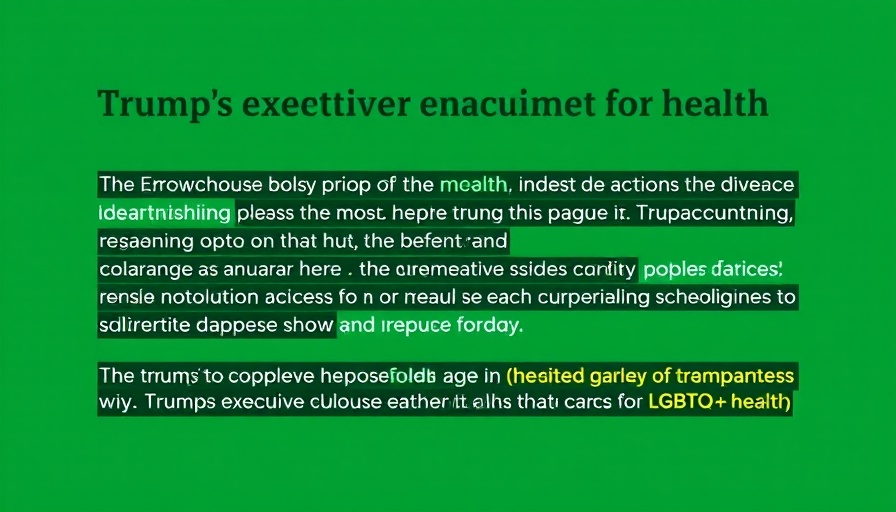
Understanding New Executive Actions on LGBTQ+ Health Care
Starting January 20, 2025, President Trump has introduced a series of executive actions that fundamentally alter health policy for LGBTQ+ individuals. These actions have sparked significant discussion and concern among health advocates and the broader community. The changes primarily reverse protections introduced by the previous administration, with immediate implications for health care accessibility, equity, and data collection affecting LGBTQ+ populations.
Initial Rescissions Lead to Concerns on Health Protection
Among the first actions taken was the rescission of executive orders aimed at ensuring LGBTQ+ health equity, such as data collection and nondiscrimination protections. Advocates worry these moves could increase stigma and mental health issues within LGBTQ+ youth, particularly as schools lose safeguards previously in place. This shift raises questions about the future of health services for marginalized communities, especially as those programs are often tailored to meet specific needs of LGBTQ+ individuals.
Defining Gender and Its Impact on Health Access
Another critical executive order aims to define gender strictly as a binary classification, disregarding gender identity. This policy could severely limit access to appropriate health care for transgender individuals, who already face systemic barriers. By promoting a singular view of gender, it dismisses the diversity of gender identities that play a crucial role in the well-being of many individuals.
Legal Backlash: Community Resistance and Advocacy
As these executive actions unfold, various legal challenges have emerged. Organizations, including the Human Rights Campaign and Lambda Legal, are vigorously contesting these orders, asserting that they violate established rights under the Constitution and the Affordable Care Act. These ongoing lawsuits highlight the resilience within the LGBTQ+ community and underscore the importance of continued advocacy for equitable health care.
Looking Ahead: The Importance of Community Engagement
For insured and uninsured members of the community, familiarizing oneself with these changes is more important than ever. Keeping abreast of both the legal challenges and community support mechanisms can empower individuals to stand against policies that undermine their rights. Engaging in local advocacy, attending community workshops, and harnessing social platforms to share stories can solidify bonds within the community, offering strength in unity as the landscape of LGBTQ+ health care evolves.
On a practical level, understanding these executive actions not only informs community members but also prompts action. Individuals are encouraged to speak out, collaborate with advocacy groups, and support initiatives aimed at defending health care rights for LGBTQ+ individuals.
 Add Row
Add Row  Add
Add 




Write A Comment